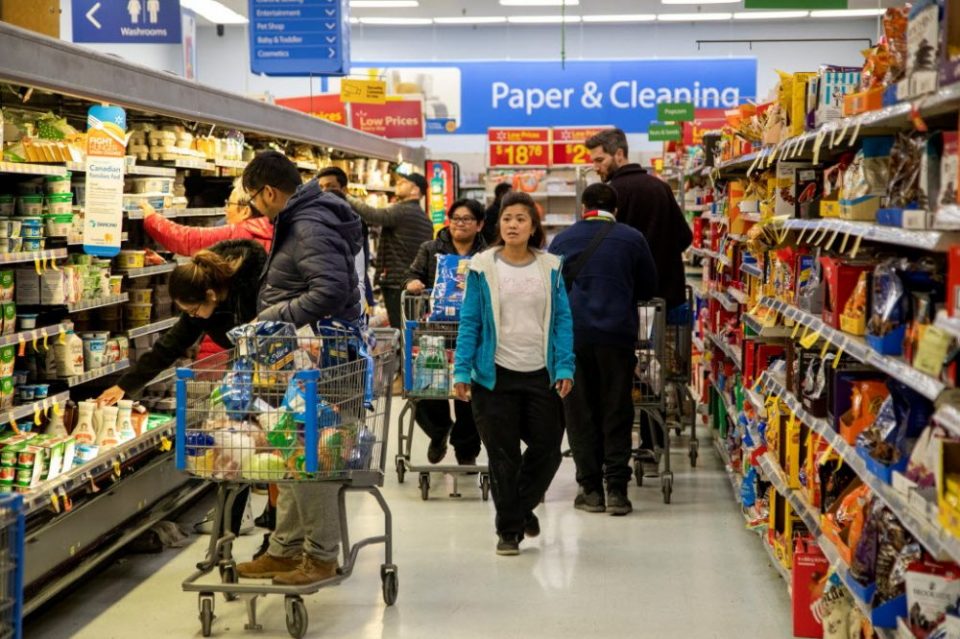Those empty shelves at London stores are not a sign of a snag or slowdown in food supplies, say warehouse and food distribution centre operators in the city.
Fresh fruits and vegetables, some from as far away as California, are flowing into two distribution businesses on Maitland Street in London that supply grocery stores and restaurants, despite the coronavirus pandemic.
The clearing of food — and toilet paper — from store shelves is more about panic buying than supply, said John MacArthur, owner of John’s Fruit and Vegetables and L&H Smith Fruit Company, both in the same building on Maitland.
“This panic has seen people just grabbing food,” he said.
“We load stuff from California and we will get odds and ends from food terminals in Detroit and Toronto, but we have not had a problem with supplies or the border. The demand is overwhelming. Everyone is fighting for product.”
Adding to the problem, this week is March break and fewer goods are flowing because stores and restaurants anticipated less demand due to people travelling. But those people are home because of travel restrictions and cautions, he said.
“This is the busiest I have seen it in 20 years. They cannot keep stock in grocery stores,” said Scott Barnes, a manager at John’s Fruit.
“People are panicked” that stores may close or goods won’t be trucked here, but there is no reason to worry, he adds.
Grocery stores are supplied food by their own distribution centres, usually out of Toronto, while the produce suppliers on Maitland help fill additional orders for stores and restaurants.
Warehouses in the city that ship goods for other stores, from Best Buy to Walmart, say the COVID-19 pandemic has slowed the flow of some goods. There has been a slowdown in production as parts of Asia and Europe have been locked down in recent weeks over the virus.
“We are seeing our volume drop from the normal day to day,” said Rick Miller, vice-president Coleman Trucking.
“Most of the stuff we deliver is just in time — no one stockpiles, not a lot of products are sitting around.”
Volume is down nearly 20 per cent overall, but he is not looking to lay off drivers, instead reducing hours to keep people on the job.
“We have the staff and trucks to get it to the stores, but we don’t have the product here,” Miller added. “We are going to start rotating shifts. We want to keep everyone busy. If anyone wants to take a leave, now is the time.”
But the company will remain open and operating even as some stores close or reduce their hours.
“We are not essential service, but we are the next best thing,” said Miller.
Coleman is considered a “final mile” trucking business, meaning it does not store goods but picks them up from warehouses to drop off to stores.
Drexel Industries is a warehouse operation where trucking firms pick up goods and take them to the store. It does not ship food but it does handle other retail goods, including Amazon and Walmart.ca orders, said Jason Salmon president.
This week has seen a mixed bag of business, with demand decreasing at retail operations as fewer people make their way to stores, but e-commerce business is growing as more packages are landing on the front porch.
“It has been slower in terms of things leaving, the demand is not there, but e-commerce is up,” said Salmon.
But Salmon also believes the slowdown is temporary, and once the veil of pandemic lifts, we may see a “springboard effect” where shopping spikes due to pent-up demand.
“We are still running seven days a week. All our admin staff work from home now, but warehouse workers have to be here,” said Salmon.


